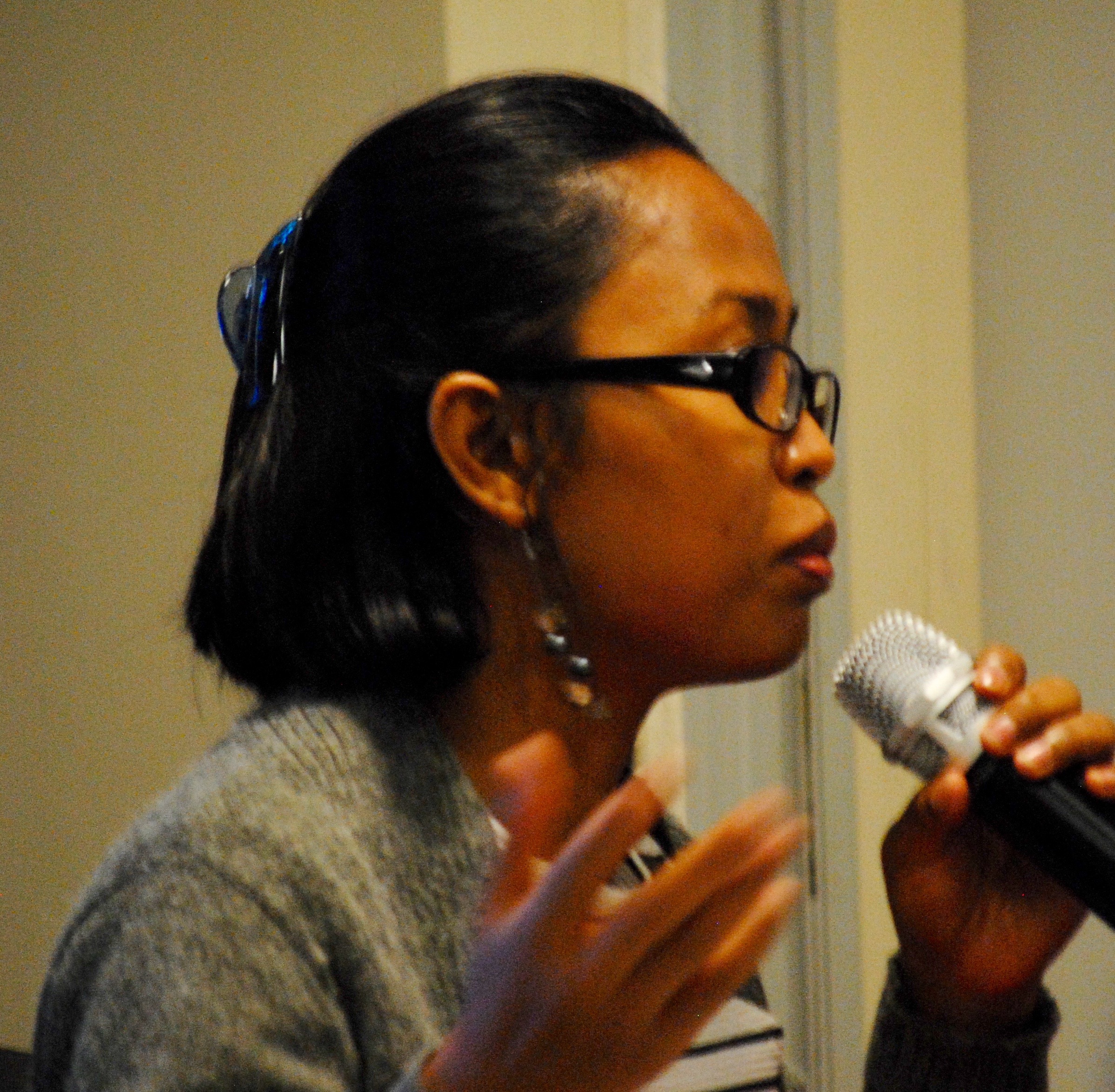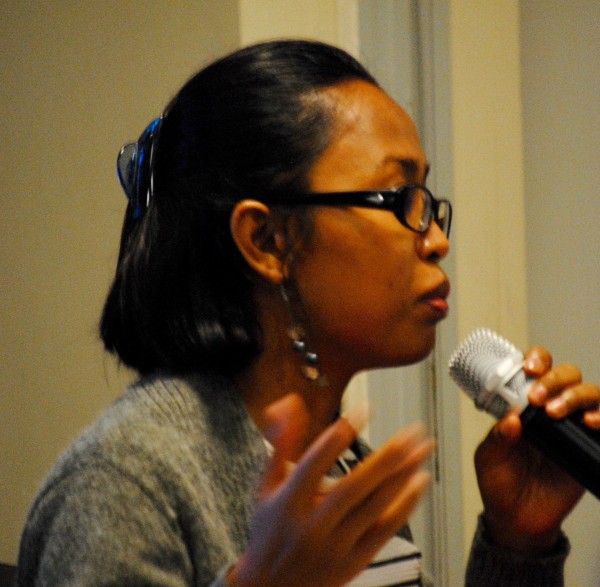
As Pope Francis spoke before the United Nations General Assembly on Friday morning in New York City, I attended a forum entitled “Women Leading the Global Labor Rights Movement” featuring two speakers who were actually dis-invited from speaking at the U.N.’s Post-2015 Development Summit.
Nazma Akter is one of Bangladesh’s most respected and influential labor leaders. She founded AWAJ (“voice” in Bengla) in 2003 to organize women garment workers, and represents 37,000 workers.
Eni Lestari is the chairperson of the International Migrants Alliance (IMA).
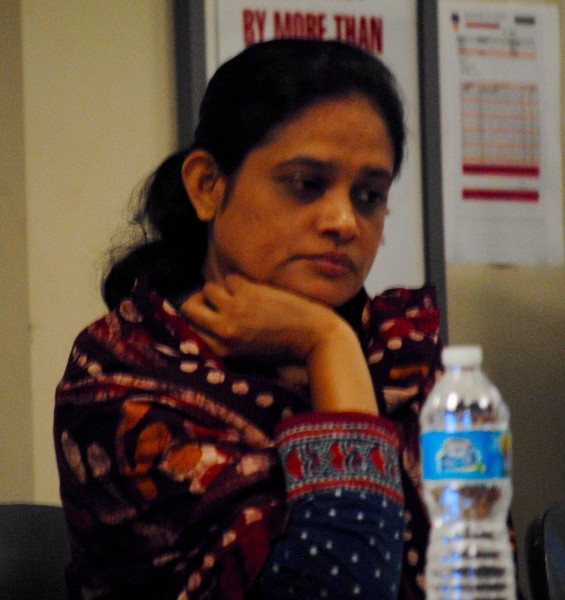
Organizers believe that the message the two women would have brought was considered too radical by the powers that be at the United Nations. “This silencing of both Eni and Nazma, who are both grassroots activists, is absolutely outrageous.”
The U.N. offered the two organizers the consolation prize of quietly observing the summit, but instead they decided to collaborate with Kate Lappin, regional coordinator for the Asia Pacific Forum on Women, Law and Development and Chaumtoli Huq, attorney and editor of Law@theMargins. With 7000 reporters covering the Pope, I figured they could spare one to cover those not allowed to speak their mind at the United Nations.
“I’m a migrant, I’m a woman. I am not high profile, not the Pope,” said Eni Lestari. In her career as a migrant worker Lestari was sometimes not paid, was underpaid, or had an agency take high fees. Many like her have worked for companies with the promise of future payment, only to come to work one morning and find the company closed, their labor stolen. “We are the low ranking class, un-respected.”
Eventually Lestari got involved in organizing. “There is no way out of this problem except through empowerment,” she said, “You need to be brave enough to fight back.”
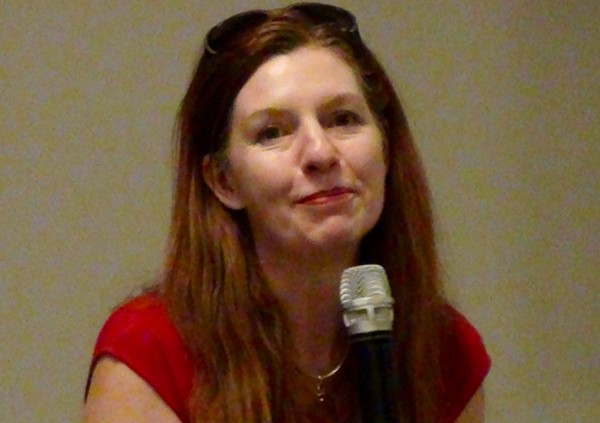
Fighting for women migrant worker’s rights is never easy. They are marginalized and infantilized. “Whenever you go to the embassy for help they ask you who your agency is and they call the agency.” Workers are euphemistically referred to as the “children” of the agency. Since the agency is often the problem nothing comes of complaining, and sometimes the situation can become worse.
Additionally, said Lestari, “workers have no time outside. [They are] emotionally and physically exhausted.”
It is difficult to organize the exhausted.
Nazma Akter started working in a Bangladeshi garment factory at the age of eleven, first as an assistant to her mother. “I worked hard, had no time to study.” Workers who attempted to organize for rights and pay were routinely beaten, fired, blacklisted or had false charges brought against them. The big media ignored their complaints. In Bangladesh, “If you want to be in a union you must get permission from government,” said Akter, “It’s not a worker friendly government.”
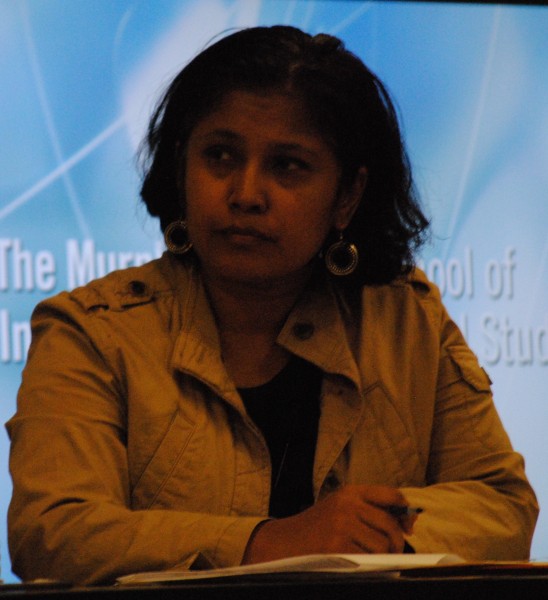
When Akter started organizing there were five unions. Today there are 31, and there are applications to the government for 100 more.
Akter’s main campaign these days is for a universal living wage. “A company like Walmart will not help us,” she noted without irony, “We need respect and dignity. Charity is not important.”
If women can be paid adequately, then their children will receive educations and health care. “The next generation of garment workers,” says Akter, “can become members of parliament.“
Kate Lappin says that the Asia Pacific Forum on Women, Law and Development tries to bring voices like Akter and Lestari to the U.N. They “have a more radical perspective than NGOs.”
The “pivot to Asia,” championed by the Obama administration, is “driven by a desire for cheap, exploited labor” and amounts to “little more than a race to see who gets to exploit women workers,” says Lappin. “The value of moving to Asia is the value of cheap women’s labor.”

